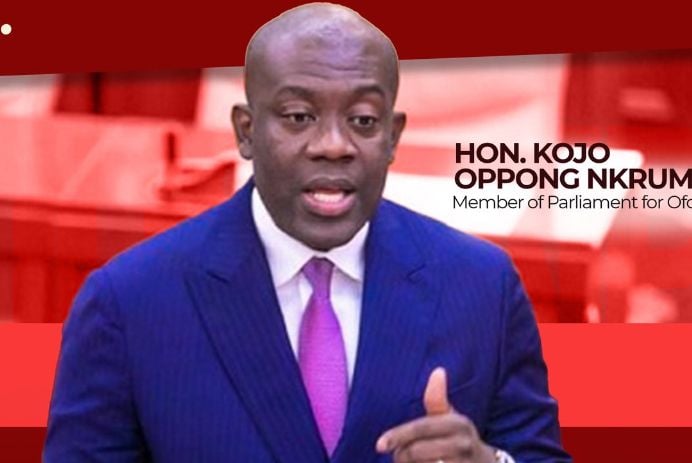The arrest and subsequent bail conditions imposed on Bernard Antwi Bosiako, popularly known as Chairman Wontumi, the Ashanti Regional Chairman of the New Patriotic Party (NPP), have sparked significant controversy and accusations of political motivation. Kojo Oppong Nkrumah, a Member of Parliament and former Information Minister, has vehemently condemned the actions of the Economic and Organised Crime Office (EOCO) and the Criminal Investigations Department (CID), characterizing the arrest as a blatant abuse of power designed to intimidate political opponents. Oppong Nkrumah highlighted the “Rambo-style” nature of the arrest, alleging that Wontumi was even assaulted during the process, following an earlier unsuccessful attempt to apprehend him in Kumasi. The subsequent imposition of a GHS50 million bail with two sureties has further fueled the perception of politically motivated persecution.
The exorbitant bail amount, coupled with the requirement of two sureties, has been met with widespread criticism, particularly from the Minority caucus in Parliament. They argue that these conditions are excessively harsh and deliberately designed to make it impossible for Wontumi to meet them, thereby ensuring his continued detention. The Minority has interpreted this as a clear indication that the arrest is not about upholding the law but rather a calculated move to suppress political dissent. This perception is further reinforced by the timing of the arrest, occurring amidst a politically charged atmosphere. The Minority’s strong reaction underscores their belief that the government is weaponizing state institutions to target political adversaries.
The Minority caucus, in a show of solidarity with Chairman Wontumi, has taken drastic measures to protest what they perceive as an injustice. They boycotted parliamentary proceedings, effectively halting legislative business, and staged a protest at EOCO headquarters, demanding Wontumi’s immediate and unconditional release. Their actions highlight the escalating tension between the ruling party and the opposition, with the Wontumi case becoming a focal point of this political struggle. The Minority’s boycott and protest represent a significant escalation in their response and signal their determination to challenge what they see as an abuse of power.
Oppong Nkrumah’s accusations of political motivation echo the concerns raised by the Minority and paint a picture of a justice system being manipulated for political gain. He argued that the arrest and the subsequent bail conditions are not rooted in legitimate legal concerns but are instead part of a broader strategy to silence and intimidate opposition voices. This narrative of political persecution resonates with the NPP’s supporters and further polarizes the political landscape. The situation highlights the delicate balance between law enforcement and political activity, raising concerns about the potential for the former to be used as a tool for political suppression.
The case of Chairman Wontumi underscores the ongoing tension between the ruling party and the opposition in Ghana. It exemplifies the challenges of ensuring a fair and impartial justice system within a highly politicized environment. The arrest and subsequent bail conditions have become a symbolic representation of the broader struggle for power and control, raising questions about the integrity and independence of state institutions. The incident fuels concerns about the potential erosion of democratic principles and the use of legal processes to stifle political dissent.
The unfolding events surrounding Chairman Wontumi’s arrest have significant implications for the political landscape of Ghana. The allegations of politically motivated persecution, coupled with the strong response from the Minority caucus, threaten to further deepen the existing political divide. The situation underscores the need for transparency and accountability within state institutions, particularly those responsible for law enforcement, to maintain public trust and ensure that justice is served without political interference. The outcome of this case will likely have far-reaching consequences for the future of political discourse and the relationship between the ruling party and the opposition in Ghana.


